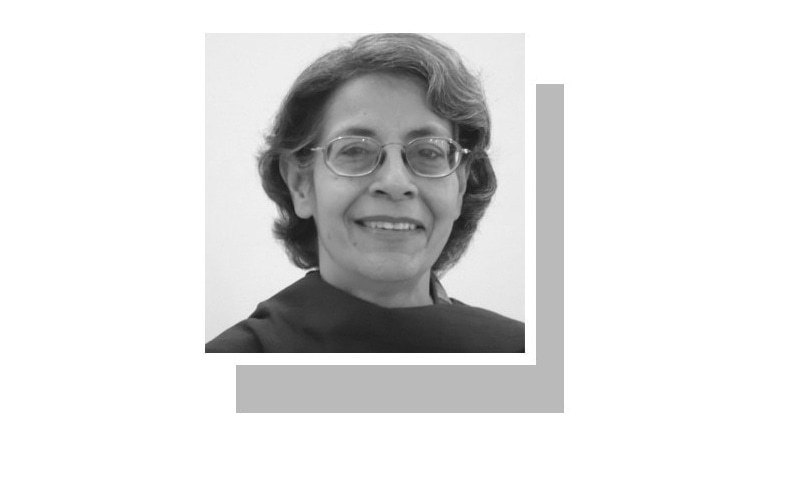
WHAT would the world have been like if women had played a role in interpreting the Quran and development of Islamic jurisprudence? Most certainly, there would have been direct impacts on the state of women and social and economic progress in Muslim countries, and perhaps on issues related to increasing militancy.
Unfortunately, women have been conspicuous by their absence in Quranic learning and teaching throughout the centuries. The issue of female scholarship of Islam and the Quran is one that needs attention now more than ever, as the consequences of patriarchal readings become obvious in the Muslim world.
It was only during the time of the Prophet (PBUH) that women were included in discussions on Quranic revelations. They went to mosques and listened to the Prophet’s message. Soon after, as old customs found their way back and beliefs from other faiths filtered in, women were relegated to an inferior position and their intellectual growth was curtailed through lack of education and exposure and imposition of male-dominated discourses.
Women scholars seem more aware of problems faced by Muslims.
Men read and interpreted the Quran and hadith, bringing their world view to bear on what women should and should not do. The Word of God, when it interacts with human beings, is interpreted with the inherent biases of individuals. Every person is a product of her or his environment and experience and must necessarily build these into his or her understanding. Hundreds of years of Quranic interpretation and the development of fiqh that forms the basis of laws in Muslim countries, by men have had a major effect on the lives of Muslim women.
It is not the Quran that is patriarchal and oppressive towards women, but the mindset of the interpreter. The subjugation of women has been sanctioned by many well-respected male scholars. Maulana Maududi and several others emphasise the ‘management’ of women by men and propagate purdah restrictions, despite, arguably, the fact that the Quran contains no injunctions for these. Thus, women are prevented even from taking a breath of fresh air.
Until the 20th century, women scholars were few and far between. If there were any, their work was limited to the confines of their homes.
Nazirah Zein Ed Din (1908-1975) was a Lebanese woman who wrote Removing the Veil and the Veiling when she was only 28 years old. The book caught the attention of scholars in Muslim and non-Muslim countries alike, but was fiercely contested by a small group of men in Egypt. Nazirah argued for social reform, led by liberation of women by removing barriers to women’s education, and active participation in society. She said: “A woman’s mind is inherently better than a man’s. He surpasses her with his physical strength and she surpasses him with her reasonable and noble character.” Her book came to be widely read and honoured for its sheer force of argument and religious reasoning.
Nusret Begüm Emin of Iran and Aisha Abd-ur Rahman of Egypt wrote well-researched tafsirs. Aisha brought in the view that both Eve and Adam were created from the same nafs (spirit) as opposed to the notion that Eve was created from Adam’s rib, a view widely propagated over the centuries. Zaynab Al Ghazali was the first woman scholar who interpreted the Quran through a contextual reading. Laleh Bakhtiar is the first American woman to have translated the Quran into English. Asma Barlas and Riffat Hasan have written extensively about women-specific verses. They use hermeneutics based on the sacred text and provide a holistic basis, as opposed to piecemeal readings, for their arguments. Their writings are markedly different from the beliefs propagated by men and focus on how the Quran addresses both women and men in society and their mutual responsibilities.
Women Muslim scholars differ from the predominantly male view that women are originators of sin, inferior to men and the ‘other’, while men are the ‘normal’. They show deeper awareness of the problems faced by Muslims today and use Quranic injunctions, inviting Muslims to move towards a better understanding of their holy text and its eternal guidance.
They underscore the fact that the Quran is meant for common people and must not be left to a group of scholars only. Their readings of verses on wife-beating, evidence of women, marriage and divorce laws, modesty and equality are well-argued and coherent. Many modern male scholars, such as Khaled Abou El Fadl and Javed Ahmed Ghamidi, share some of their views.
Female Islamic scholarship, especially when it dares to question entrenched views and practices, is not encouraged. Will there be a time when these works are shared widely and opportunities provided to women to study the Quran with an open mind, without being influenced by unfounded religious pressures?
The writer is a freelance contributor with an interest in religion.
Published in Dawn, November 4th, 2016











































